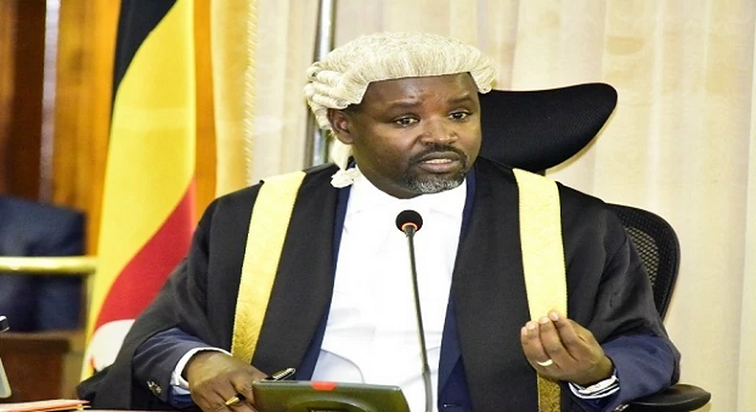Uganda’s Deputy Speaker, Thomas Tayebwa (pictured) has summoned a meeting with the top leadership of Parliament to discuss how the latest five bills aimed at tightening regulations on money laundering will be handled within two weeks.
This is a result of fears that Uganda would be blacklisted over failure to tackle money laundering.
Tayebwa’s summons came after Attorney General, Kiryowa Kiwanuka took to the floor of parliament to table five bills including; The Trustees Incorporation (Amendment) Bill, 2022, The Anti-Terrorism (Amendment) Bill, 2022, The Anti-Money Laundering (Amendment) Bill, 2022, The Cooperative Societies (Amendment) Bill, 2022, The Partnerships (Amendment) Bill, 2022, The Companies (Amendment) Bill and The Insolvency (Amendment) Bill, 2022.
In the meeting, Tayebwa is slated to meet with Kiryowa, Shadow Attorney General Wilfred Niwagaba, Chief Government Whip Hamson Obua and Leader of Opposition Mathias Mpuuga as well as chairpersons of Legal, Defence and Tourism Committees as well as Dean of Independents.
The Deputy Speaker said: “I need you for a meeting in my chambers to discuss how we can handle these bills very quickly because there are repercussions if we don’t have these bills in two weeks time. So I want us to meet and agree on the mondus operandi,”
The development comes at the time in January 2022, the Executive Director of the Finance Intelligence Authority, Sydney Asubo warned Parliament that Uganda risks being blacklisted by the Financial Action Taskforce (FATF) if the government does not tackle money laundering by May 2022.
Asubo informed the Finance Committee that the FATF maintains a watch list of countries that have significant shortfalls in tackling money laundering categorised under the grey list and the black list and Uganda made it to that list in May 2020 and although Government promised to address the specific issues within a given time frame, there were a number of issues are still outstanding thus prompting the FATF to warn Uganda that if these issues are not addressed, Uganda would be blacklisted.
Asubo further warned Parliament that if Uganda were to be blacklisted, the banking sector would crash and at the moment, the impending blacklist is already impacting the financial sector with international transactions that used to take a day or two, are now taking a week or two because of the tight scrutiny process.
According to the bills tabled by Government, Uganda’s Anti-Money Laundering/Combating the Financing of Terrorism (AML/CFT) Mutual Evaluation Report was adopted in 2016 and the report highlighted several matters that Uganda needs to address in its AML/CFT legal and regulatory framework for Uganda to be considered compliant with the Financial Action Task Force (FATF) recommendations.
The MER highlighted the inadequacy of the administrative sanctions regime in Uganda’s AML/CFT legal and regulatory framework and there were recommendations requiring countries to ensure that there is a range of effective, proportionate and dissuasive sanctions whether criminal, civil or administrative available to deal with natural or legal persons who fail to comply with the AML/CFT requirements.
Uganda is said to lose Shs2Trn annually through money laundering.





